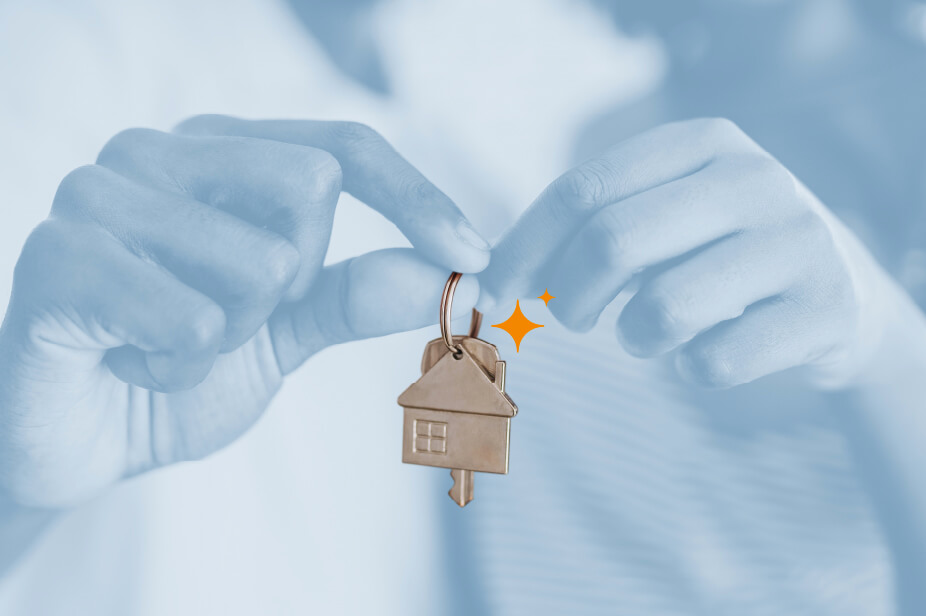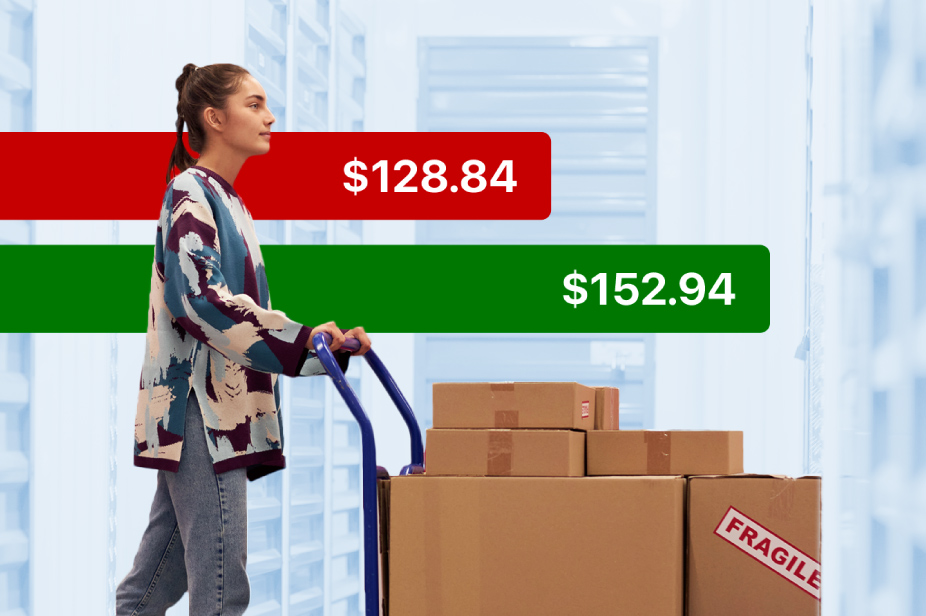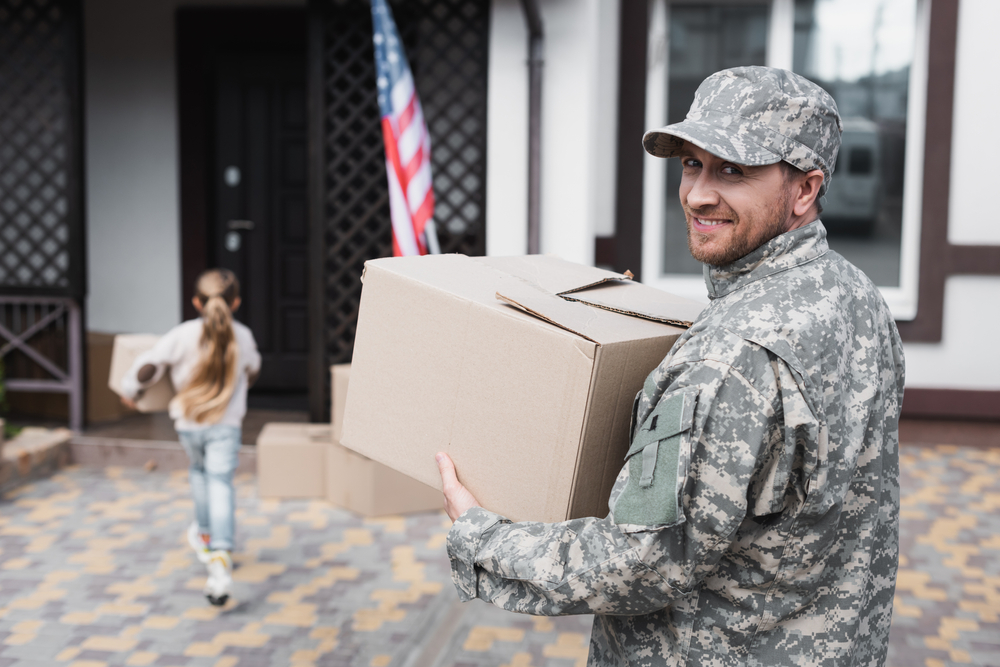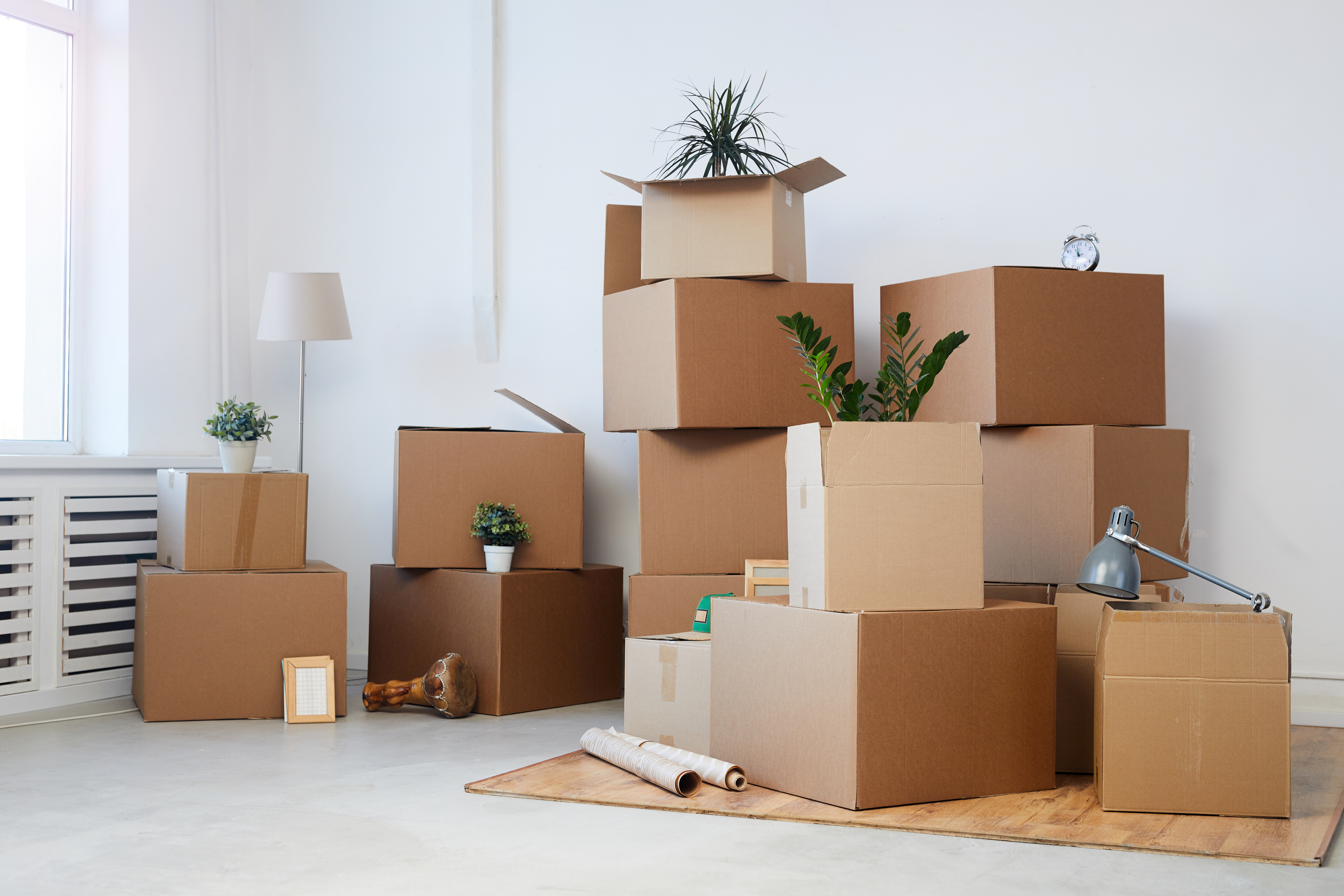Michaela Melo forgot to buy an oven mitt. Shortly before she graduated from the University of the Philippines, Melo moved into her first apartment and made the oven mitt discovery. “I vividly remember cooking a pizza in my new apartment’s oven and realizing I didn’t have anything to take it out with. I had to use a washcloth!”
Now a seasoned pro, Melo’s story offers helpful insights to anyone moving into a new apartment. She says a checklist makes moving into your first apartment easier. “Being prepared with a list of these small necessities can make the transition much smoother, and avoid such surprises along the way,” she said.
Read on for a helpful guide for preparing to move into your first apartment – click on a link to learn more:
- Budgeting and financial considerations
- Finding the right apartment
- Lease agreement and legal considerations
- Furnishing and essential items
- Packing and moving preparation
- Utilities and Service Set-Up
- Safety and security measures
- Moving day and settling in
- Building relationships with neighbors
- Establishing a routine
Budgeting and Financial Considerations
Setting a realistic budget is one of the first things to tackle when preparing for your first move. Expenses pile up quickly, and you want to be prepared. Joshua Haley, Founder of Moving Astute, reminds clients that there are many other costs to consider besides rent.
“When moving into your first apartment, it’s crucial to consider the total cost beyond just the rent,” he said. “Many people underestimate or forget about additional expenses such as security deposits, utility setup fees, renters insurance, moving costs, and initial furnishing and decorating expenses. Creating a comprehensive budget that includes these additional costs will help you plan your finances more effectively.”
You also want to consider purchasing renter’s insurance so that you are covered in case of unforeseen circumstances.
Finding the Right Apartment
Before you start searching on rental platforms like Zillow, think about your priorities when it comes to the apartment you want. Is there a particular neighborhood that you want to live in? If so, are you willing to sacrifice when it comes to the number of bedrooms? There is almost always a give-and-take when it comes to making your final decision, and it helps to be clear on non-negotiables before the search begins!
Once you start saving listings that look promising, feel free to reach out to real estate agents directly. Oftentimes their numbers are listed, and this can help move the process forward more quickly. Ask when you can come by to see the apartment, and make sure to have your list of questions at hand so you don’t forget. For example, you may want to inquire about whether the unit has laundry hookups, amenities like a gym, or storage units available.
Pro Tip: Beware of scams and fake rentals that can be found online. Check out our guide on how to find an apartment on Craigslist for tips on how to avoid rental scams.
Lease Agreement and Legal Considerations
Even though it’s your first apartment, be aware that negotiating lease terms is common practice. Read and understand all the clauses and terms of the agreement before signing, and don’t hesitate to ask questions if something is unclear. If you need further clarification, it may be helpful to speak with a lawyer.
Melo says navigating the process of moving into her first apartment was challenging. “Moving into my first apartment was both exciting and a bit tough. I had to search for a suitable place, sign the lease, and set up everything on a budget. It was different from moving into a dorm because I had more freedom to choose and make the place my own.”
Furnishing and Essential Items
Once you’ve found the right apartment and signed the lease, it’s time to move on to the fun stuff! Purchasing the essential items you’ll need in your new place can be done on a budget if you get creative.
“To save money, I discovered the dollar store, which was a real game-changer,” said Melo. “I could get cheap kitchen utensils, spices, and household stuff to make my new place cozy without spending too much. It was a smart way to start my own little home.”
Checking out second hand stores like Goodwill can also save money. This list will give you a great place to start when thinking about everything you need to have in your first apartment, from pillows to plungers!
Melo says don’t forget the small stuff. “One helpful moving tip I discovered when moving into my first apartment is to make a list of small but essential items that are often overlooked. Include things like a plunger, extra light bulbs, a broom, a tool kit, oven mitts, and baking trays. It’s easy to forget about these items, but they prove to be crucial in daily living.”
Packing and Moving Preparation
If there’s one thing that will help keep your stress levels low as you transition to your first apartment, it’s giving yourself plenty of time to tackle things gradually. Creating a moving checklist and timeline is a helpful way to start. That way you know what needs to get done each week and you’ll be ready to go by moving day! Things like decluttering or gathering packing supplies can be done well in advance of the move and will take the pressure off as the date approaches.
During this period, you’ll need to decide whether it makes sense to hire professional movers.
“When I moved into my first apartment, I opted to do it myself to save money,” said Melo. “It turned out to be quite a task, taking a lot of effort and time. Looking back, I would recommend considering professional movers if you can afford it. They handle the heavy lifting, packing, and logistics, which relieves a huge burden.”
Utilities and Service Set-Up
Some of the key housekeeping tasks that go along with a move include scheduling utility hook-ups and transfers. The owner or leasing manager should provide you with a list of all utilities and contact information. You may need to do your own research for internet, cable and phone providers, although some apartment complexes come with standard packages. Don’t forget to forward your mail to your new address, which can typically be done online at usps.com.
Melo said she faced some unexpected challenges on the administrative side. “I didn’t anticipate the level of responsibility that comes with it. Handling bills and household chores was a new experience for me. The initial costs of setting up the place, like buying kitchen utensils and cleaning supplies, also caught me off guard. It was a learning process that made me understand the importance of being organized and prepared for adult responsibilities.”
Safety and Security Measures
When you move into your new apartment, take some time to familiarize yourself with the safety and security situation. This might include things like:
- Checking and testing smoke alarms and carbon monoxide detectors
- Assessing door and window locks
- Familiarizing yourself with emergency exits
- Understanding building security protocols
Moving Day and Settling In
As you’re packing up your current home, make an essentials moving box of things you will need access to on moving day and keep it with you. You don’t want to be digging through boxes for your toiletries, medications, or coffee!
Whether you are packing boxes yourself or getting help from movers, remember to write the name of the room the items will end up in on the box. For example, if you currently have books in your bedroom but will store them in your office at the new pad, write “office” not “bedroom” on that box.
Take your time purchasing all the odds and ends you’ll need in your new home. Melo said “I made the mistake of going on a shopping spree and buying everything at once, which led to unnecessary stuff piling up.” She says anything that can wait should be purchased after the move.
“In the future, I’d do things differently by taking it easy and making lists of what I really need as I go along. I’d prioritize getting essentials like a plunger and a basic tool kit in advance. Everything else can wait until I genuinely require it. Being more mindful of my spending and focusing on practical necessities would help me avoid clutter and save money.”
Building Relationships with Neighbors and Building Management
When you arrive at your new home, make sure to do an inspection and report any damages to the apartment (like imperfections in the drywall or broken fixtures). Find out the protocol to report when maintenance is required. And don’t forget to introduce yourself to the neighbors!
Establishing a Routine and Making the Space Your Own
“When people move into their first apartment, they often underestimate the importance of having a comfortable bed for a good night’s sleep,” said Melo. “It’s crucial! Instead of rushing to buy everything, like a TV or fancy couch, focus on the essentials to save money.”
Personalizing your apartment means taking stock of the things that are most important to you and prioritizing around that. For Melo, it’s her bed. For you, it might be a super comfy couch. Once the stress of the move is over, it’s time to relax into a daily routine, build community with your new neighbors, and explore the area.
We hope Melo’s story and these tips for moving into an apartment inspire you to stay organized, take time to settle in safely, and above all enjoy the experience!
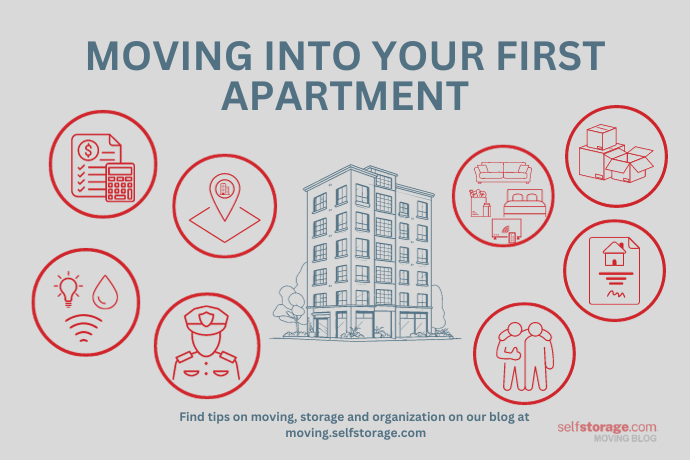

![Survey: Nearly Half of Movers Take Months To Finish Unpacking [+ 10 Unpacking Tips]](https://moving.selfstorage.com/wp-content/uploads/2025/06/how-to-unpack-after-moving-hero.jpg)
